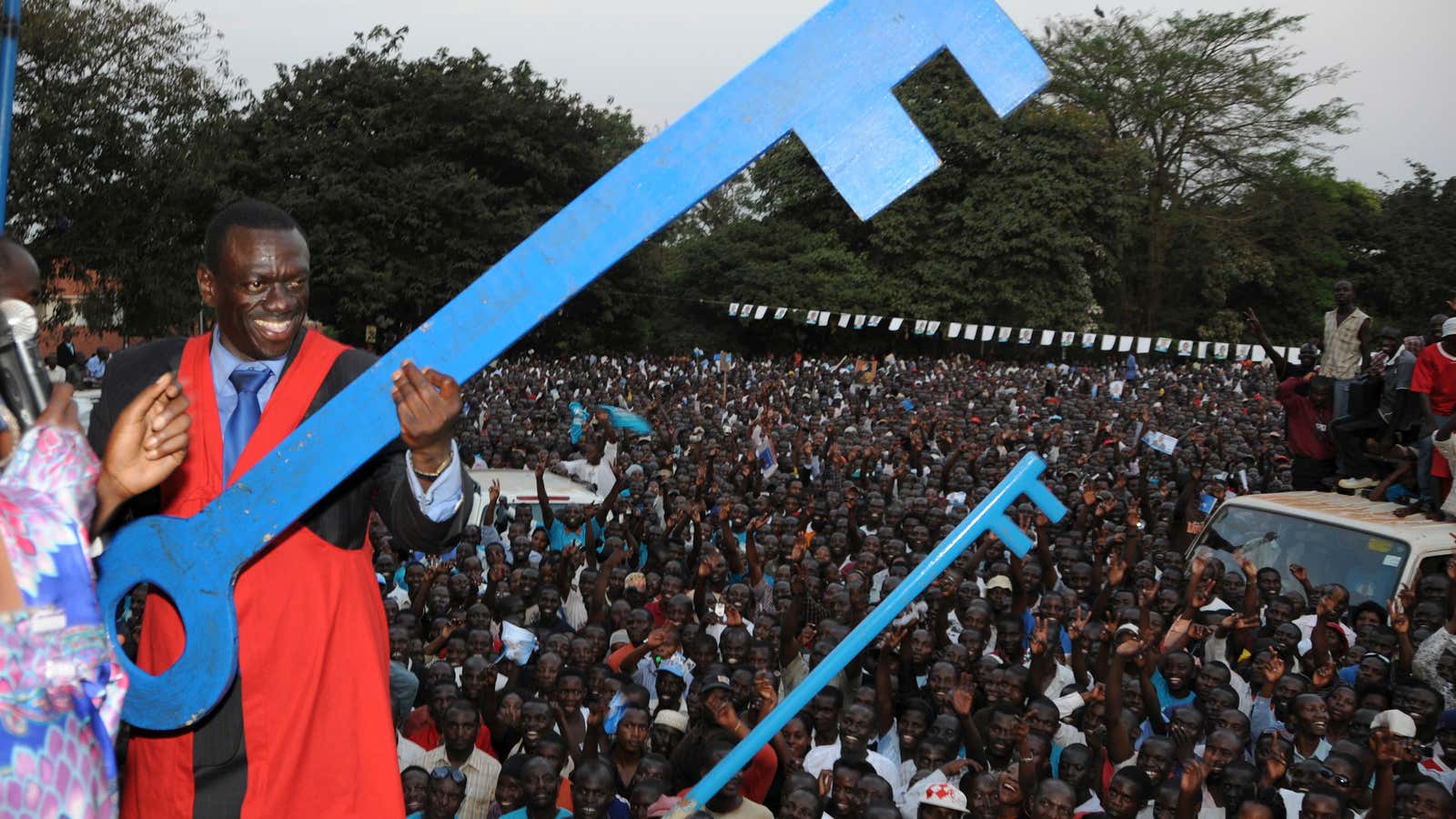Makerere University, one of Africa’s oldest and most prestigious universities, has been closed by Uganda’s president Yoweri Museveni. It follows weeks of student protests and a months-long strike by lecturers who say the government hasn’t paid their allowances since February.
The presidential directive issued on Tuesday evening (Nov. 1) said the university was closed “with immediate effect, until further notice, in order to guarantee safety of persons and property.”
Uganda’s highest learning institution has been embroiled in protests, involving both academic staff and students. The university’s lecturers resolved to strike in late October and refused to teach, demanding the government pay their incentive arrears in full. The incentives were introduced during the 2013/14 academic years, after teachers demanded 100% salary increment, according to the Daily Monitor newspaper. The current outstanding payment was almost 30 billion Ugandan shillings or over $8.3 million.
The students, complaining about the lack of lecturers during the academic year, then started demonstrating. Dressed in their red undergraduate gowns, students protested both inside and outside the university campus, clashing with police and demanding an end to the lecturer’s strike. And even though the university’s council agreed on Tuesday (Nov. 1) to pay a month’s worth of the lecturer’s incentive, the president went on to announce the closure of the university.
The move was criticized by opposition member Kizza Besigye, who also called out the police’s actions against the protesting students. Despite the university’s financial disarray, political money is at least in abundant in Uganda. President Museveni, for instance, spent $231 million on his campaign to secure a fifth term early this year, while his closest competitor Amama Mbabazi spent $19.9 million—a figure far more than the lecturer’s collective demand.
Since its establishment in 1922, Makerere University has been home to award-winning writers, academic, Nobel Prize winners, and presidents who have studied, taught or resided at the institution. The university, which is spread over three campuses, offers 134 undergraduate programs and 135 master’s degrees.
